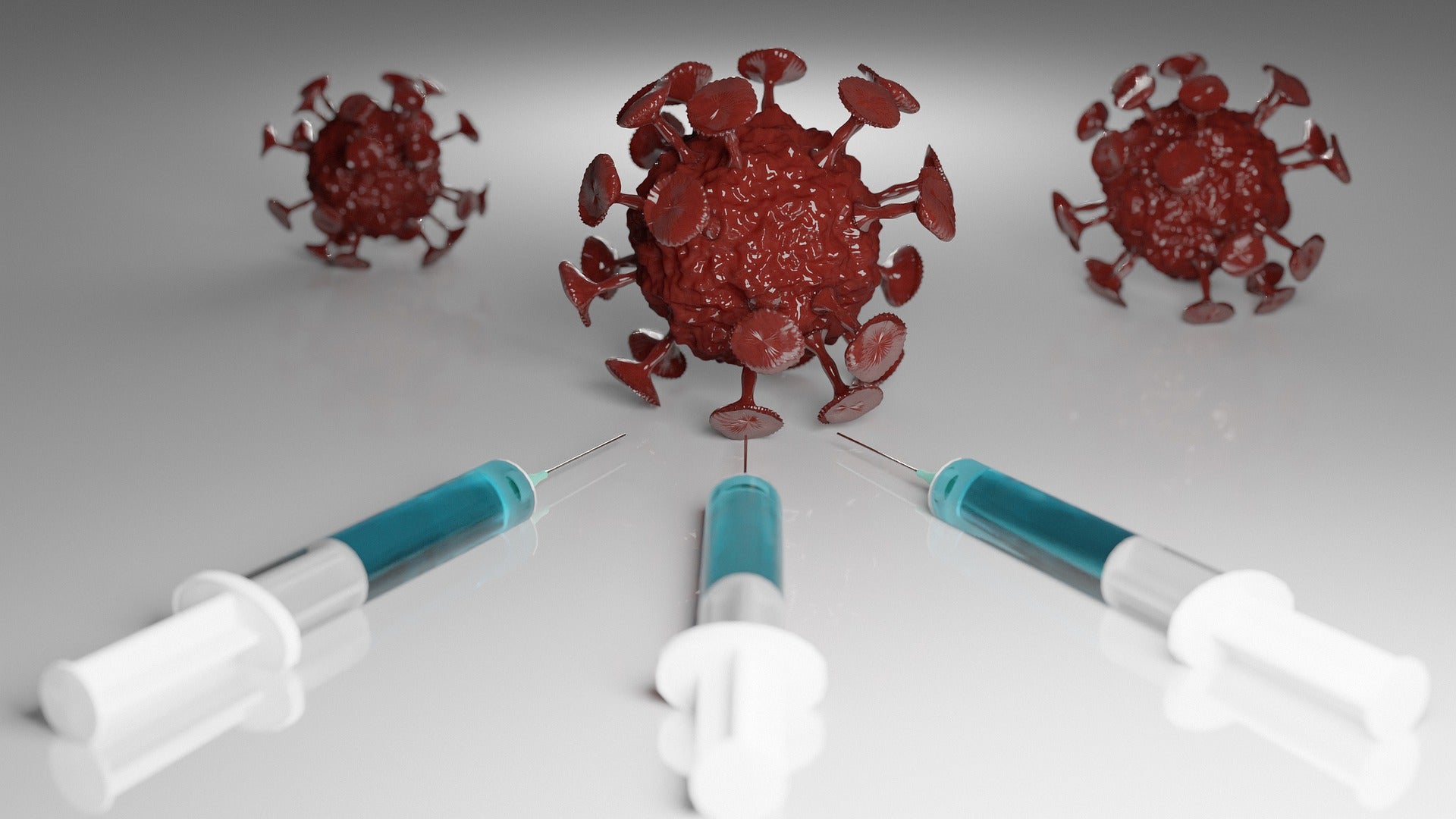
UK-based drug company Scancell has received approval from the South African Health Products Regulatory Authority (SAHPRA) to conduct a Phase I clinical trial of its Covid-19 vaccine candidates.
Referred to as COVIDITY-001, the trial is part of the COVIDITY programme designed to assess the company’s SCOV1 and SCOV2 vaccines.
Scancell is carrying out COVIDITY in partnership with researchers from the Centre for Research on Global Virus Infections and the Biodiscovery Institute at the University of Nottingham and Nottingham Trent University.
SCOV1 targets the original SARS-CoV-2 strain while SCOV2 acts on the variants of the virus.
Both vaccines are developed using an alteration of Scancell’s ImmunoBody DNA vaccine technology and stimulate T-cell immune responses against the N and S antigens of SARS-CoV-2.
How well do you really know your competitors?
Access the most comprehensive Company Profiles on the market, powered by GlobalData. Save hours of research. Gain competitive edge.

Thank you!
Your download email will arrive shortly
Not ready to buy yet? Download a free sample
We are confident about the unique quality of our Company Profiles. However, we want you to make the most beneficial decision for your business, so we offer a free sample that you can download by submitting the below form
By GlobalDataThey target the S antigen’s receptor-binding domain (RBD) to induce cross-reactive virus-neutralising antibodies (VNAbs) against multiple variants of concern such as the new Delta variant.
Scancell CEO professor Lindy Durrant said: “Our approach of targeting the conserved N protein in addition to generating potent, cross-reactive VNAbs has the potential to provide a significant clinical advantage by eliciting potent T cells that can destroy cells infected with any SARSCoV-2 variants and other SARS-CoV viruses that may emerge in the future.”
The Phase I COVIDITY-001 trial is expected to commence in the second half of this year.
Part one of the trial, to be performed at the University of Cape Town Lung Institute in South Africa, will enrol vaccine-naïve, healthy adults.
Scancell noted that sites in the UK will not be involved in Part one because of the country’s vaccination programme and no unvaccinated individuals who are required for preliminary safety assessment.
This part will evaluate the safety and immunogenicity of SCOV1 and SCOV2 at various doses administered using needle-free systems via two different injection routes.
If positive safety data is obtained, the company will apply to the UK’s Medicines & Healthcare products Regulatory Agency (MHRA) to launch an extension of the trial in the country.
The extension, Part two, will involve healthy participants who have previously taken two doses of a vaccine that has been authorised. It will monitor immune responses generated by Scancell’s vaccines.
Earlier this month, SAHPRA approved ImmunityBio’s Phase I/II/III trial of dual-antigen T-cell Covid-19 vaccine.







